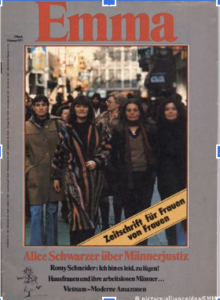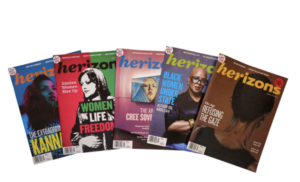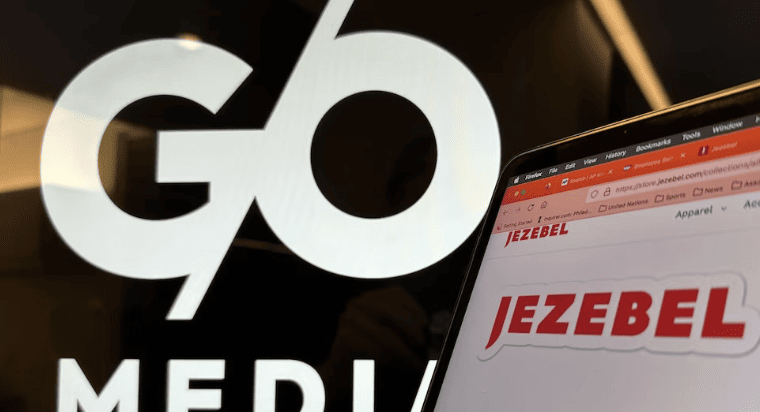Sex. Celebrity. Politics. With Teeth. This bold tagline encapsulated the essence of Jezebel, a feminist media platform that recently made headlines not for its groundbreaking articles but for the decision to suspend its publication. On November 9, its parent company, G/O Media, announced the closure, citing economic challenges and shifting audience priorities as the driving forces behind the decision. This move marks the end of an influential chapter in online feminist discourse.
Launched in 2007 by Gawker Media, Jezebel quickly established itself as a trailblazer in feminist commentary, predating the widespread awareness brought by the #MeToo movement. The website’s unique blend of sharp commentary on gender politics and edgy pop culture coverage offered an alternative to traditional women’s magazines, which are dominated by fashion content.
Kate Cox, program director for Poynter’s Leadership Academy for Women in Media, noted Jezebel’s appeal to readers as a platform that seamlessly combined style with serious news and commentary. The site covered political issues such as abortion, but it gained the most attention for its scathing critiques of celebrity culture and the fashion industry, bringing topics such as “body shaming” and “rape culture” into the mainstream national discourse.
Reflecting on Jezebel’s legacy, founder Anna Holmes emphasized its role as a catalyst for discussions on crucial topics like sexual assault, harassment, pay inequality, and cultural representations of women. In a recent essay for The New Yorker, Holmes described the launch of Jezebel as a “once-in-a-lifetime opportunity” to redefine women’s media at a time when feminist sites were independently owned with small audiences and use of academic language. Holmes wanted to “combine wits, smarts, and anger” to provide women with an accessible, critical mode of thinking around gender and race.
The closing of Jezebel’s digital doors prompts an examination of its ties to current political affairs within the United States. The landscape of feminist media is undoubtedly shaped by economic factors, as well as by anti-abortion and anti-LGBTQIA+ legislation. Jezebel’s closure also sparks a broader exploration into what the end of Jezebel signifies for feminist sites globally. Are these platforms vulnerable to economic and political pressures in different countries? What potential ripple effects could the closure of Jezebel have on global feminist discourse and activism?
In the United States, G/O Media’s statement on the closure of Jezebel points to economic challenges, a sentiment echoed by many in the digital media industry. The media landscape is evolving rapidly, and even successful platforms are not immune to financial difficulties. Jim Spanfeller, CEO of G/O Media, acknowledged that the industry’s central challenge is marketing dollars not ma terializing despite the continued expansion of the U.S. economy. Nevertheless, Spanfeller praised Jezebel’s editorial coverage on “key issues core to modern women” which served to change women’s media forever.
terializing despite the continued expansion of the U.S. economy. Nevertheless, Spanfeller praised Jezebel’s editorial coverage on “key issues core to modern women” which served to change women’s media forever.
Across the Atlantic, Germany’s feminist magazine Emma celebrates its 45th anniversary this year. Founded in 1977 by Alice Schwarzer, Emma positioned itself as a symbol of feminist resistance, offering a platform for discussions on women’s issues. Schwarzer sees “Emma as the last magazine for sale today that remains in feminists’ hands” as the publication continues to print and distribute its issues. However, it faces a generational divide, with younger feminists, such as Margarete Stokowski, critiquing the magazine’s stance supporting the legalization of prostitution.
In Canada, Herizons, the longest surviving feminist magazine, experienced a temporary closure in 1987 due to the non-renewal of its federal grant. However, it resurfaced in 1992, emphasizing the importance of community support and financial sustainability for feminist media. Herizons continues to thrive and reached its 30th anniversary in 2022, still publishing quarterly. The magazine covers t

opics such as sexual harassment, body image, women’s history, abortion, feminist artists, women with disabilities, lesbian feminists, and more.
In the United Kingdom, Mslexia standsas a distinctive feminist literary magazine, making waves since its inception in 1999. Positioned as the only publication where every reader is a potential contributor, Mslexia actively addresses g
ender imbalances in the literary world by showcasing the work of over 70 different contributors in every issue. Beyond being a literary platform, the magazine, led by Editor Debbie Taylor, actively engages in discussions about publishing trends, review processes, and the broader challenges faced by women writers. Mslexia’s continued presence serves as a testament to the enduring relevance of feminist dialogues and its tangible impact on empowering women writers in the UK and beyond.
In an era where feminist conversations are more critical than ever, the closure of Jezebel serves as a poignant reminder of the challenges faced by media outlets dedicated to elevating women’s voices. The impact of this closure extends beyond the digital realm, echoing through conversations about gender, sexism, and power on a global scale. As feminist platforms around the world navigate economic uncertainties and shifting societal priorities, their resilience, and adaptability will be crucial in sustaining the momentum of global feminist discourse and activism. The stories of Jezebel, Emma, Herizons, and Mslexia underscore the ongoing struggle to carve out spaces for women’s voices and perspectives in a media landscape that is constantly evolving.
Image source:
- “Emma” – Image: picture-alliance/dpa/EMMA
- “Herizons” Magazine Image Source
Other posts that may interest you:
- Local Victories for Turkish Opposition — A Sign of Hope?
- Are France and Japan a Mismatch Made in Heaven?
- A Reflection on Dark Tourism
- Cadavre Exquis : Goodbye stranger
- An Untoward Progress?
Discover more from The Sundial Press
Subscribe to get the latest posts sent to your email.





